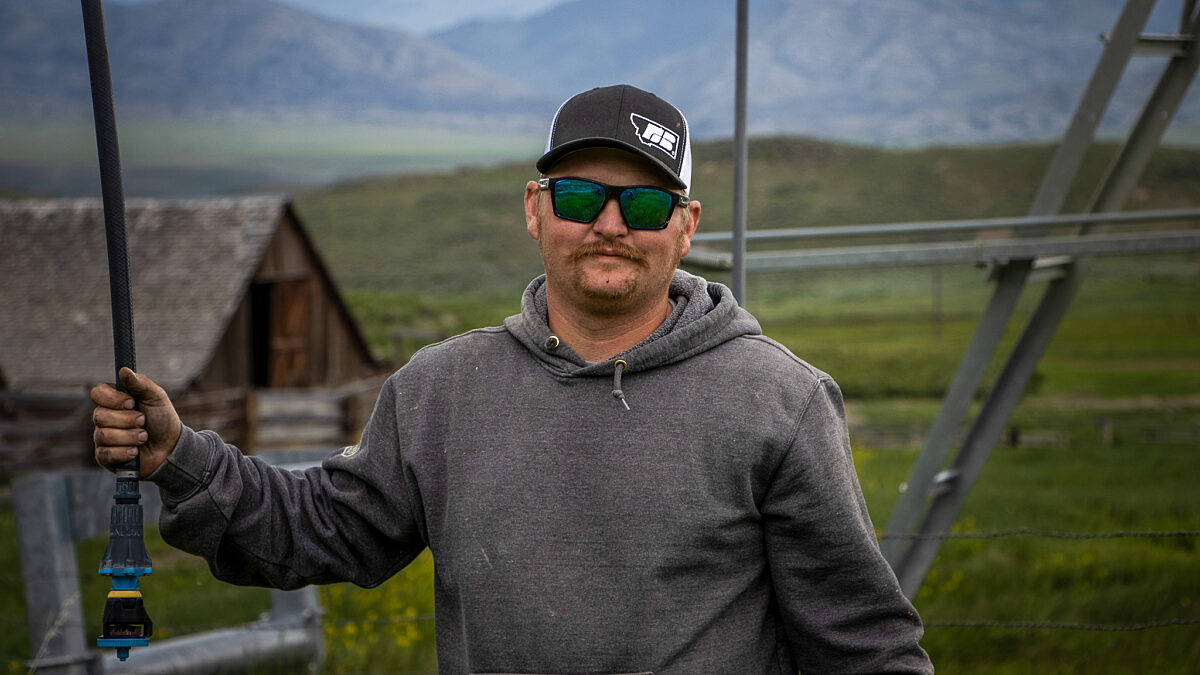The Farm Bill is Important for Environmental and Economic Sustainability
TOPICS
Farm BillJM Peck

photo credit: AFBF Photo, Dylan Davidson
JM Peck
Growing up, some of my fondest memories revolved around working on our cattle ranch alongside my father and grandfather. The satisfaction of a successful day’s work still resonates with me today. The ranch gave me a first-hand understanding of where our food comes from and instilled a strong work ethic from a young age. Now, as a father of a four-year-old boy, I can’t imagine a better place for him to grow up. Living, working and raising a family in agriculture is an amazing privilege but that privilege is at stake without programs outlined in the farm bill.
The farm bill is probably one of the most important pieces of legislation that our lawmakers work on in Washington, D.C. As a cattle rancher in southwest Montana, the farm bill impacts the future of our family’s ranch in a couple of key ways.
Passing a farm bill isn’t just about protecting our food, fiber and fuel supply today, but it’s also an investment in the future.
The biggest for our ranch are the conservation programs available through the Environmental Quality Incentives Program.
EQIP, operated through the USDA, provides assistance to farmers and ranchers to address natural resource issues and produce environmental benefits such as improved water and air quality, and reduction of soil sedimentation. EQIP can also help mitigate loss from drought or bad weather. It is a voluntary program where eligible farms and ranches implement conservation practices according to the resource concerns of their land. The most widely used EQIP practices include cover crops, nutrient management, fencing improvements and water irrigation management.
Conservation practices, especially in our area, cost a lot up front and take a long time to yield a financial return, if they ever do—not to mention the pressures of current high interest rates. So, the EQIP program and the dollars that are made available make these projects accessible, where we otherwise simply could not afford the financial investment.
We’ve taken advantage of the EQIP program many times on our ranch as we’ve looked at different ways to improve the efficiency of water in our operations. Whether it’s having a stronger diversion out of a tributary or the management for flood irrigation, EQIP has allowed us to recognize and address the spots on our ranch where conservation practices will be the most effective and beneficial. Conservation is a priority for farm and ranch families like mine, and these farm bill programs help us access the tools we need.
The other aspect of the farm bill that’s very important to our ranch is the Livestock Indemnity Program. When we have huge weather events, most likely a blizzard, this program helps us recover losses to ensure we can stay in business through tough times.
A memorable example was in 2019, when we saw more than 30 days with a daytime high that never got above zero degrees Fahrenheit. It was a devastating year with constant blizzard conditions, leading to significant losses to our herd. But through LIP, we were able to go to our Farm Service Agency office, provide records to show our losses and receive about 60% of the value of our lost herd. That’s a situation no farmer or rancher wants to be in, but that coverage helped us hang on through the toughest of times and gave us the chance to keep ranching.
Without the farm bill, families like mine would be forced out of business with one tough year. That’s bad news not just for my family but yours, as those losses place our food supply at risk.
Passing a farm bill isn’t just about protecting our food, fiber and fuel supply today, but it’s also an investment in the future. We never know what is truly on the horizon, but with a new and stronger farm bill, we can ensure our grocery store shelves are full and be confident about passing on the torch to our next generation.
JM Peck is a rancher and Farm Bureau leader in Montana.
Trending Topics
VIEW ALL